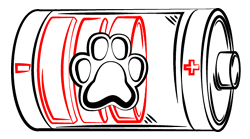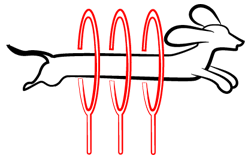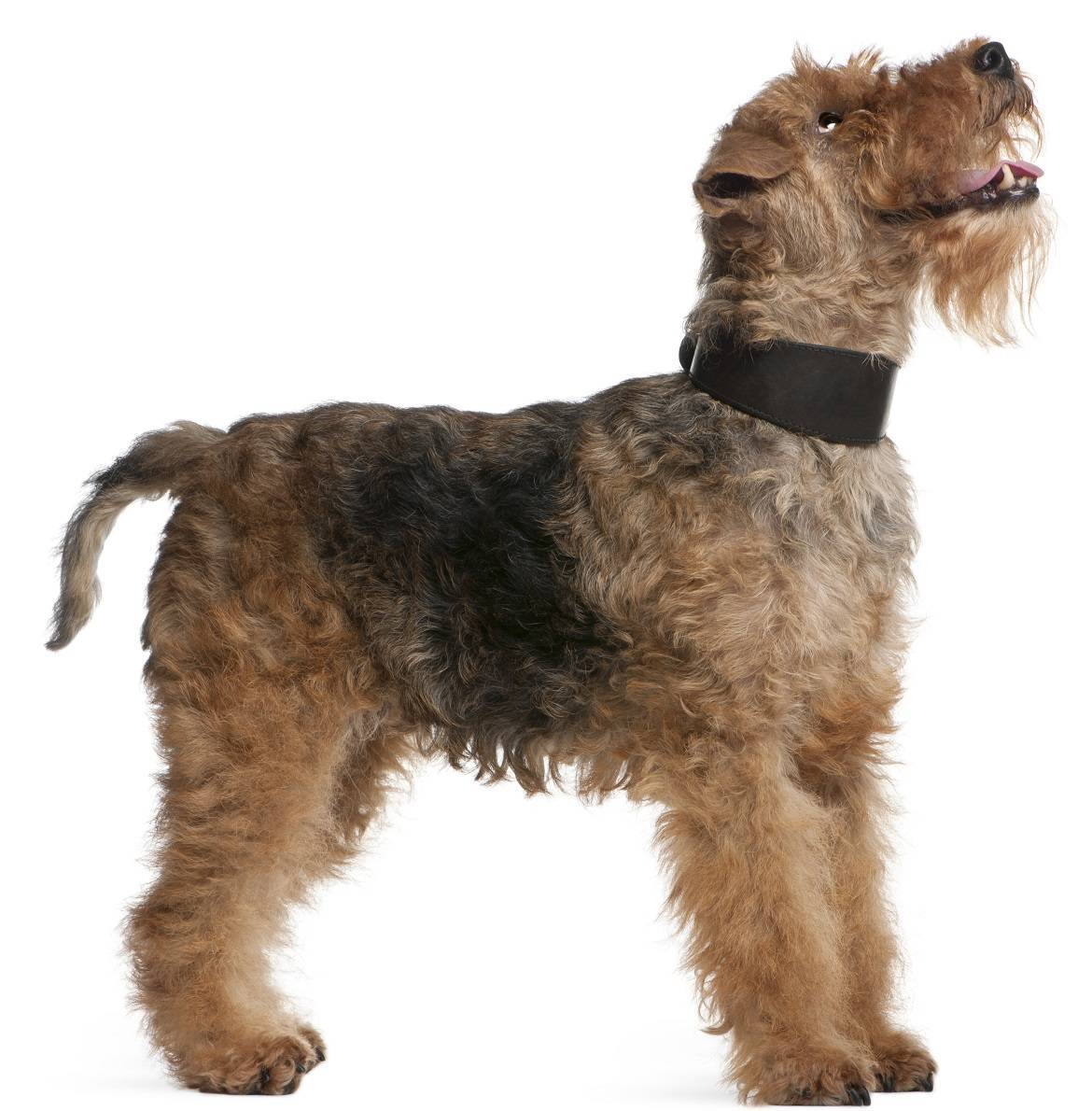
Paws ‘N’ Pups Quickview
Size
| Energy Level
| Trainability
| Paws ‘N’ Pups Rank
|
Characteristics
| Physical Characteristics: Height: 15-18” Weight: 15-21 lbs. Energy Level: Moderate | Colors: The American Kennel Club recognizes the Welsh Terrier in the following colors:
|
Health & Longevity
Average Life Span: 10-12 years
The Welsh Terrier is considered to be a relatively healthy breed, but if poor breeding practices take place, your pup may not be as healthy as it should. For this reason, it is vital to work with a responsible breeder who screens his or her pups.
Some of the medical conditions that the Welsh Terrier is prone to include glaucoma, Addison’s Disease, epilepsy, blindness, cataracts, Cushing’s Disease, lens luxation, and megaesophagus.
Your Welsh Terrier may suffer from glaucoma. This is a condition where there is too much pressure placed onto the eye. This results in the eye not being able to drain correctly and can lead to blindness and nerve damage, if not treated in a timely manner.
Addison’s Disease is a disease where the adrenal gland does not function properly and this leads to a lack of corticosteroids in your pup’s body. This disease can impair the function of your pup’s body.
Epilepsy is another concern in your Welsh Terrier. Seizures can be shocking to witness and often involve convulsions. Also, your pup may or may not lose consciousness. Sometimes medication is needed to help hinder the frequency of the seizures.
Blindness may occur in your Welsh Terrier and usually does due to an underlying factor such as cataracts, retinal atrophy, or glaucoma. Cataracts may be present at birth or may form over time.
Cushing’s Disease is a disease that is marked by a benign tumor which is located on the pituitary gland. This disease also affects the adrenal gland and can lead to impaired functions within your pup’s body.
Lens luxation occurs when the strands that hold the lens in the eye in place fail, or can no longer hold the eye in its place. This condition happens in both eyes, not just to one or the other.
Lastly, your pup may have megaesophagus. This is a condition that occurs in older dogs and can cause your pup to vomit and have trouble keeping food down.
The Welsh Terrier has a life expectancy of 10 to 12 years.
Temperament & Train-ability
The Welsh Terrier is considered to be quite playful and is often independent and mischievous. You will find that your Welsh Terrier likes to get into trouble and does not always mind his or her manners.
Even though this pup is independent, you will find that he or she is quite shy around strangers, but will alert you to any strangers that approach the home. This makes it a good watchdog, but not a great guard dog.
This breed performs okay with children but is not very tolerant of young kids who play rough. You can find a happy medium if you socialize your pup early on and teach your kids how to play around your Welsh Terrier.
The Welsh Terrier is not known to be aggressive, but he or she may chase down smaller pets when the Terrier instinct is in full swing, so it is recommended that you keep a close eye on any smaller pets in your home.
You will find that your Welsh Terrier likes to swim and play outside. It is important that he or she have a yard to run around in and receive a walk or two per day. You need to make sure that you have a secure fence around your yard, as this breed does like to dig a lot.
This breed is not difficult to train, but they do have a bit of a stubborn side and housebreaking them takes a lot of time and patience. You need to remain consistent and firm when you command your pup and train him or her. Use positive reinforcement to your advantage with treats or extra play time.
As a final note, you should make sure that you do not leave your pup alone for too long, as the Welsh Terrier is known to become destructive in your home.
Grooming
The Welsh Terrier does have some moderate grooming needs and you will find that your pup requires a stripping and clipping of his or her coat. You will need to take your pup to the groomer at least once every couple of months.
It is important that you brush your pup’s coat once per day to remove any tangles and mats that may form. You do not need to bathe your pup unless it is absolutely necessary. If you feel like your pup needs a bath, you could have one performed while he or she is at the groomer.
You will need to clean your pup’s ears once per week to remove any buildup of ear wax and debris. In addition, a nail trim once per month is needed to ensure your pup’s nails do not grow too long.
Diet
Your Welsh Terrier will consume between 3/4 cup and 1.5 cups of food per day. You should choose a brand of dry kibble that is high-quality and all-natural. You want to avoid products that contain chemicals and fillers.
Looking for a Welsh Terrier?
 Find A Welsh Terrier Breeder |  Welsh Terrier Puppies For Sale |  Adopt A Welsh Terrier |
Cost
A Welsh Terrier puppy will cost you an average of $600 to $800. The cost of the puppy will depend on how popular the breed is and the breeder you choose. In addition to the cost of the puppy, you need to factor in the cost of vaccines, vet checkups, and other medical costs such as flea prevention and heartworm medication.
Paws ‘N’ Pups Ranking
Paws ‘N’ Pups ranks every breed out of 4 with 1 being easiest to integrate into your life and 4 being the toughest – The lower the ranking the better.
Ranking takes into account a few basic factors including cost, skill level needed, high vs low maintenance and how critical regular training is to success. The Welsh Terrier is a good choice for your home, but may not get along well with smaller children due to their inability to be gentle all of the time. Training can be relatively difficult when it comes to housebreaking. You will find that your Welsh Terrier does have some moderate grooming needs and should not be left alone in the house, as he or she may become destructive and anxious. This breed ranks a 3.
Breeds Similar To Welsh Terrier
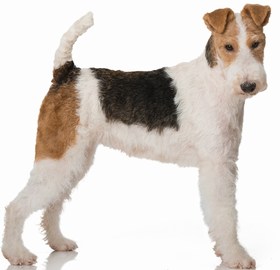 Wire Fox Terrier | 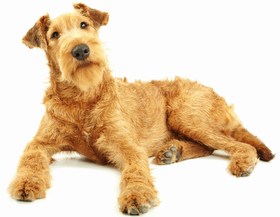 Irish Terrier | 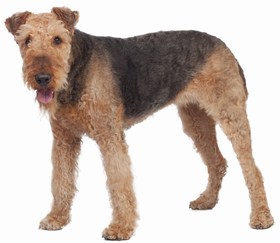 Airedale Terrier | 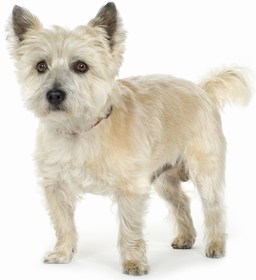 Cairn Terrier |


